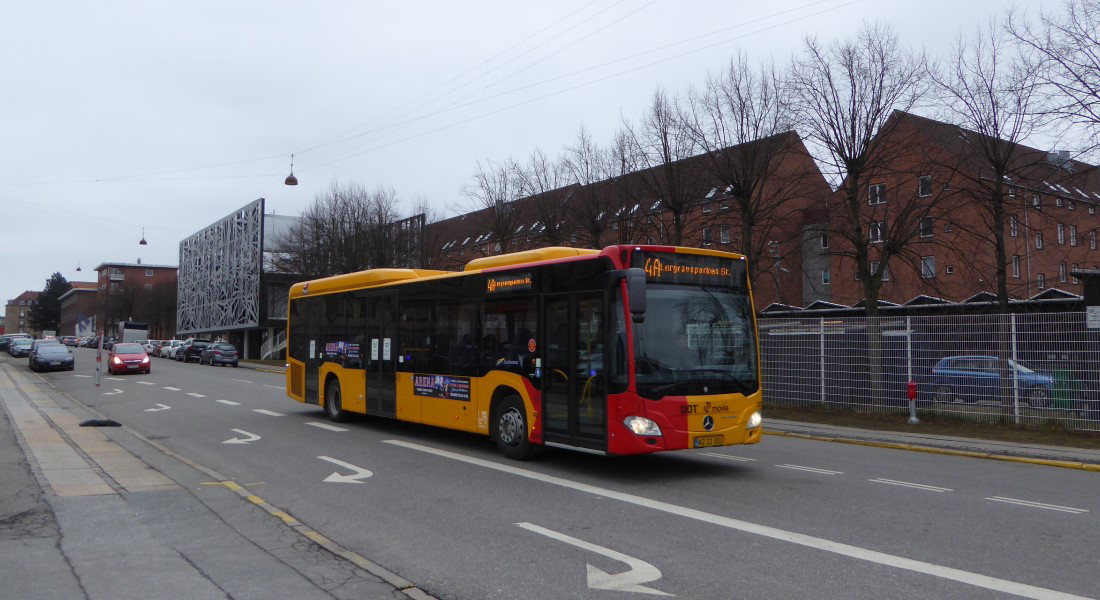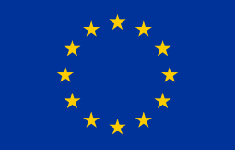Urban B/ordering (UrBorder) - An Ethnographic Study of the Ghetto Package in Denmark
This project is an ethnographic investigation of urban bordering and the potential challenges to the social cohesion of 21st-century liberal democracies. The two-year research project will focus on the actors and stakes on the ground and the resulting societal and political consequences of the Ghetto Package in Denmark.

The project UrBorder aims to understand how socio-legal practices produce new urban borders and sociocultural boundaries. It will do this by providing a theoretically informed, in-depth ethnographic account of the implementation and the socio-political consequences of the so-called Ghetto Package, which was adopted by the Danish Parliament in 2018.
The overall aim of UrBorder is to build up a field-based theory that will contribute to our understanding of the actual working of urban bordering, both in the role it plays in managing marginal social activities and groups, and the societal and political consequences. To achieve this objective, it builds upon the knowledge and findings of Contested Belongings, a two-year individual postdoctoral research project at the Centre for Criminology (CC), University of Oxford (UO), funded by the Carlsberg Foundation. It will focus on the actual workings and implementation of urban bordering on the ground, which will include analysing the interplay of the different agents, narratives, and interests in situ.
For instance, if comparing the different developmental plans in Denmark due to the Ghetto Package (GP) at a glance, we see that although there are differences in the application, the overall logic is similar: The remodelling of the areas dovetails with the establishment of internal borders or boundaries between problematic or undesirable inhabitants and the rest. The logical questions would then be: Who are the subjects prone to be expelled? Who is desired? Under which terms? Moreover, what does that tell us about Danish society and who belongs, or not, to it?
Consequently, this research project will focus on the following two research questions:
1) Who are the actors involved in the urban bordering practices, and what stakes and power relations are there?
UrBorder will provide empirical data on the different actors involved in the implementation of the GP. It will study how they interact with the policies and laws and their social positions and power relations.
2) What are the social and political consequences?
Though the GP does not explicitly aim to do so, it will unavoidably influence the field of belonging, even indirectly. UrBorder will illustrate potential consequences of urban bordering practices such as the GP on local society, and more importantly, their influence on minorities’ subjectivity and their sense of belonging at different scales (neighbourhood, region, nation), in accordance with economic, social, and cultural capitals and gender.
UrBorder is an ethnographic investigation of urban bordering and the potential challenges to the social cohesion of 21st-century liberal democracies. The two-year research project will focus on the actors and stakes on the ground and the resulting societal and political consequences of the Ghetto Package (GP) in Denmark.
The following outlines the methodological techniques used to answer each research question:
1) Who are the actors involved in the urban bordering practices, and what stakes and power relations are there?
To address this, the project will carry out six months of ethnographic fieldwork in two housing areas affected by the legislation, either directly or indirectly, through the developmental plans. The areas will be decided bearing in mind internal diversity, overall representability, and comparability. For instance, one of the areas will be in a small town where no gentrification occurs.
Although it is intended to employ various methods, mainly ethnographic techniques such as participant observation and informal chats will elicit information on who intervenes in the particular practices studied. Furthermore, the project will map out actors, their social positions, stakes, and interests, and, in a similar vein, compare the different developmental plans to discover emerging patterns and variety.
2) What are the social and political consequences?
To answer this, long-term observation and participation are crucial. In addition to participant observation – which will provide crucial information on the residents for this phase – to elicit more detailed information on the meanings that the different actors ascribe to the practices and the immediate social consequences, the project will conduct at least 40 semi-structured interviews, four focus groups, and ten life-histories with people affected directly or indirectly by the measures taken, as well as other residents, always assuring a representativity in terms of ethnicity, gender, class, and age.
The analytical focus will be on detecting the resulting social relations and consequences on the ground, i.e., the impact on ‘local society’ and those deemed migrants and minorities in general, exploring any tensions, conflicts, and changes, both concerning the local practices and other local-global factors, thereby contributing with an ethnographic understanding of urban bordering.
As soon as the project has published any publications, they will be shown here.
Researchers
| Name | Title | Phone | |
|---|---|---|---|
| Search in Name | Search in Title | Search in Phone |
Funded by:

UrBorder has received a two year funding from the European Union through the Marie Skłodowska-Curie Fellow programme and is based at the University of Barcelona.
Project: Urban B/ordering (UrBorder) - An Ethnographic Study of the Ghetto Package in Denmark
Period: 2022 - 2024
Contact
Martin Lundsteen
Affiliated Researcher at the Centre for Global Criminology
Postdoc, PhD
Department of Social Anthropology,
University of Barcelona
Mail: martinlundsteen@ub.edu
Phone: +34 934 037 507
